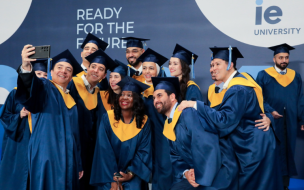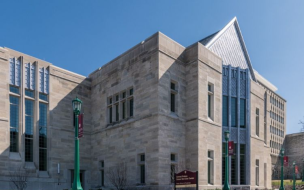The blended form of learning has already been embraced by the likes of Harvard and Stanford. But as competition with disruptive online education providers – so called edtech companies – intensifies, others are rolling out the programs to keep pace with digital innovation.
“The launch of our Online MBA program represents our commitment to developing innovative programs that enable busy professionals to earn a business degree,” says Gene Anderson, Miami School of Business dean. Miami’s new online degree will launch in September 2015. It is billed as fully-online but offers a one-week residency on Miami’s campus in Florida.
The program will be the third online master to be launched by the business school this year, following masters programs in finance and accounting.
The Miami Online MBA came a week after Australia’s top business school AGSM said it would launch a digital version of its flagship business master with specializations in social impact and technology, the MBAx.
AGSM offers a blended MBA program with a tech focus — the MBT — which combines online learning and face-to-face classes. But this is being phased out and replaced by MBAx.
AGSM has widely embraced tech to aid learning, having rolled out e-portfolios on Apple iPads for its postgraduate students, with similar devices deployed at Hult and Ashridge Business Schools in the UK, Swiss school IMD, and NYU Stern and Darden Schools of the US.
Miami is keen to stress that the online curriculum is as rigorous as its campus programs. Along with replicating professor and peer interaction, this is a key challenge universities have faced in expanding online.
Bernard Garrette, associate dean for the MBA at HEC Paris, a leading business school in France, says: “Online teaching will undoubtedly become more prevalent in the future, but it is undeniable that there are some elements of the business school experience which are irreplaceable.”
Miami and AGSM were joined this month but the Jack Welch College of Business at Connecticut’s Sacred Heart University, which launched a hybrid MBA program that will be run over two years.
“It provides flexibility for professionals who want to experience our masters, but can’t commit to onsite classes on a weekly basis,” says Anthony Macari, executive director of graduate business programs.
This flexibility is increasingly sought after as the time demands of the global workforce become ever greater.
“Business schools need to adapt to the changing needs of sponsoring organizations and a world of work that requires more flexibility,” says Dr Richard McBain, head of post-experience postgraduate programs at Henley Business School, which offers a blended, Flexible EMBA program.
Business schools recognize the potential of digital but are wary of losing the interaction that students demand.
“We believe strongly in high experience learning and have introduced several weekend experiences in major cities in the US this year,” says Phil Powell, chairperson of the Kelley Direct online MBA program at Indiana University, which also allows online MBA students to participate in study trips abroad.
“This provides students [with] more hands-on opportunities to experiment and apply their learnings,” Phil says. Networking and career opportunities also benefit from face-to-face contact. “It is really a shift in thinking about communicating in a digital space – demonstrating how effective it can be to collaborate and network within a digital environment,” he adds.
This requires investment. But schools see this as necessary to head off the potential threat posed by the developers of massive open online courses, or Moocs, such as Coursera, Edx and Udacity.
“We have had to create a lot of specialized tools – software, ect – and adopted new systems to support the [online] team environment,” says William Lamb, dean of the graduate school at Babson College, which offers a Blended Learning MBA program.
However, neither the digital disruptors nor the “traditional” universities have yet crafted the ideal delivery model of online education.
But further innovation is abound. “Blended learning has become more prevalent in education, and the expectation from students years from now may very well be a mixture of traditional classroom and online teaching in every program,” says Derek Amoako, marketing executive at Cass Business School.
Susan Cates, executive director of the online MBA@UNC at Kenan–Flagler Business School, says: “Without question, blended learning is an essential adaptation for business schools.”
RECAPTHA :
22
4d
a8
06








